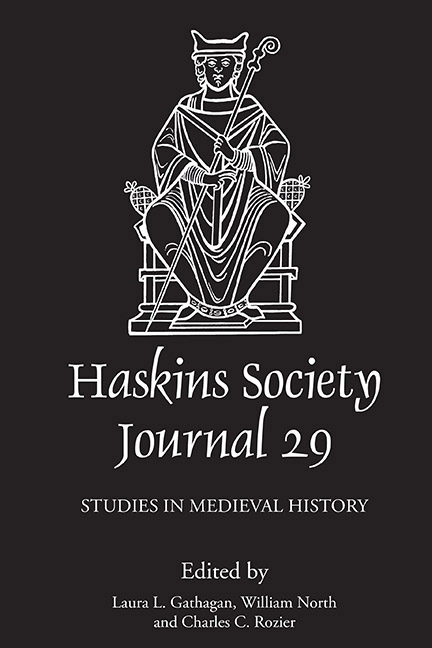Book contents
- Frontmatter
- Contents
- List of Figures and Tables
- Editors’ Note
- Abbreviations
- 1 The Longue Durée of a Symbolic System: Mounted Warriors and Horses in the Chronicon Salernitanum
- 2 Revolution(s) of Writing: Northern France, Tenth–Fourteenth Centuries
- 3 Slave or Free: The Aehtemann in Anglo-Saxon Rural Society
- 4 Norman Ducal Property in the Tenth and Eleventh Centuries: A Spatial and Chronological Analysis
- 5 The Codex Wintoniensis in its Twelfth-Century Context
- 6 The Carmen Ceccanense: A Neglected Source for the End of the Norman Kingdom of Sicily, Introduction – Edition – Translation
- 7 Succession and Interregnum in the English Polity: The Case of 1141
- 8 Crusading Participation in Normandy and its Borderlands: The Evidence from the Old French Traditions of the First Crusade
- 9 The Domesday Controversy: A Review and a New Interpretation
7 - Succession and Interregnum in the English Polity: The Case of 1141
Published online by Cambridge University Press: 15 October 2019
- Frontmatter
- Contents
- List of Figures and Tables
- Editors’ Note
- Abbreviations
- 1 The Longue Durée of a Symbolic System: Mounted Warriors and Horses in the Chronicon Salernitanum
- 2 Revolution(s) of Writing: Northern France, Tenth–Fourteenth Centuries
- 3 Slave or Free: The Aehtemann in Anglo-Saxon Rural Society
- 4 Norman Ducal Property in the Tenth and Eleventh Centuries: A Spatial and Chronological Analysis
- 5 The Codex Wintoniensis in its Twelfth-Century Context
- 6 The Carmen Ceccanense: A Neglected Source for the End of the Norman Kingdom of Sicily, Introduction – Edition – Translation
- 7 Succession and Interregnum in the English Polity: The Case of 1141
- 8 Crusading Participation in Normandy and its Borderlands: The Evidence from the Old French Traditions of the First Crusade
- 9 The Domesday Controversy: A Review and a New Interpretation
Summary
On 2 February 1141, outside the city of Lincoln, King Stephen of England fell into the hands of his enemies. Many contemporary or near contemporary authors noticed the events that took place on that fateful day as well as the consequences that followed on from it because it ushered in a traumatic year for the king and the kingdom. Modern historians, too, have been drawn to the moment of Stephen's capture and the year that followed because it represents one of the key points in the reign when the conflict at the heart of the times might have been resolved. As events worked themselves out, Stephen's capture turned out to be no more than an interruption to the reign of that monarch. The king was released on 1 November 1141 and, after a cleansing second coronation ceremony which marked the end of that ‘annus horribilis’, the restored monarch resumed the tottering course of his reign. His rival, the Empress Matilda, was left to lick her wounds having been thwarted of her best opportunity to assume the throne in her own right.
The modern historiography of the capture of King Stephen and its political consequences begins with J.H. Round. It was he who established beyond doubt the dates for the stages by which Matilda came to style herself domina Anglorum, ‘lady of the English’ (the title that she wore, amongst others, between 1141 and 1148), a process which he saw as having been completed by 8 April 1141. And it was he who first established definitively what the phrase domina Anglorum might mean in the context of its day. ‘…“domina”’, he stated, ‘possessed the special sense of the interim royal title’ with the intention that ‘the empress [was] to be crowned at Westminster, and so to become queen in name as well as in deed’. Those who have taken up the challenge of thinking through the implications of 1141 have been content to follow these two key points. First that the empress's formal reception at Winchester on 8 April as domina Anglorum was an indication that she was monarch-designate, awaiting coronation, and second that in the meantime she exercised royal power.
- Type
- Chapter
- Information
- The Haskins Society Journal 292017. Studies in Medieval History, pp. 181 - 200Publisher: Boydell & BrewerPrint publication year: 2018

